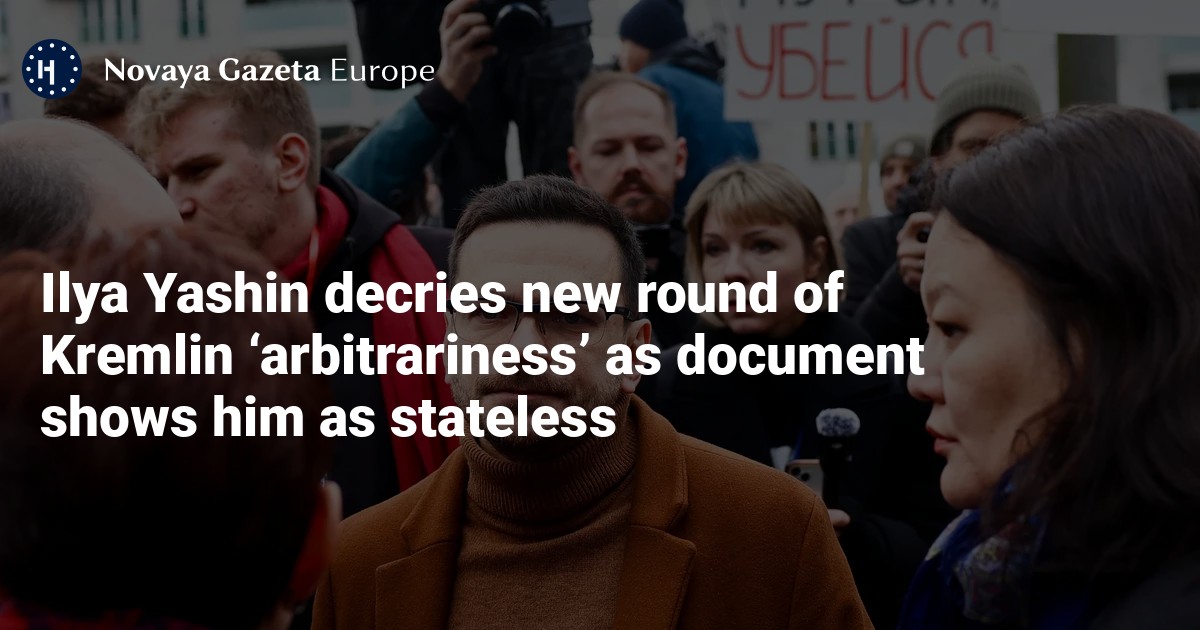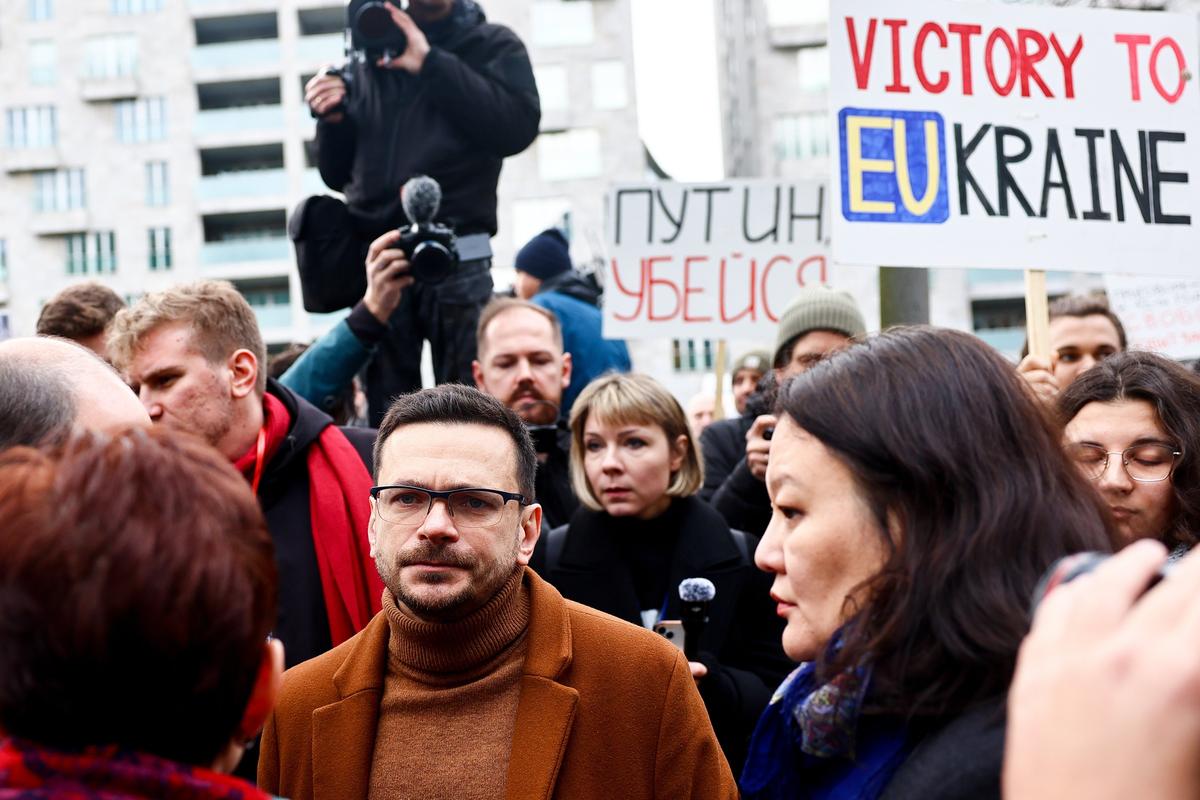



Ilya Yashin takes part in an anti-war demonstration in Berlin, Germany, 17 November 2024. Photo: EPA/FILIP SINGER
The Russian Interior Ministry has deemed the exiled Russian opposition politician Ilya Yashin a “stateless person” and has banned him from entering Russia, Yashin said on his Telegram channel on Monday.
According to case files seen by Yashin and his lawyer, a federal law designed to “ensure state security”, and which can only be applied to foreign nationals or the stateless, was used as the legal basis for the application to deny Yashin’s right to return to his homeland.
"Who made the decision to deprive me of the Russian citizenship I was granted at birth? What was the procedure? How does this decision relate to the direct constitutional prohibition on depriving Russians of citizenship?” Yashin asked, adding that should the ban be approved by the courts, Russians would be “dealing with a very important precedent and a new round of arbitrariness from Putin’s government.”
Article 6 of the Russian Constitution specifically prohibits the deprivation of Russian citizenship from those who have had it since birth.
Shortly after Yashin’s post, Independent Russian media outlet Agentstvo reported that Yashin’s passport does not appear to have been cancelled according to the document verification service available on Gosuslugi, the Russian state’s online portal.
Yashin, a close associate of late opposition leader Alexey Navalny and an outspoken Kremlin critic, was sentenced to an eight-and-a-half year prison sentence for publicly condemning the atrocities carried out by Russian troops during their month-long occupation of the Kyiv suburb of Bucha in 2022.
Subsequently exchanged in a major prisoner swap with the West in August 2024, Yashin has always maintained that he had not agreed to be exchanged, and has condemned what he called his “illegal expulsion” from his homeland.
“I refused to leave Russia under the threat of arrest, understanding myself as a Russian politician, a patriot. I understood my detention not only as an anti-war struggle, but also as a struggle for my right to live in my country, to engage in independent politics there.”
Last month again, another prominent Russian opposition figure in exile, Vladimir Kara-Murza, accused the Kremlin of reviving the Soviet-era practice of stripping dissidents of their Russian citizenship after his application for a new passport was turned down by the Russian Embassy in Washington.
“The Putin regime has returned to the Soviet practice of depriving political opponents of their own country’s citizenship. No one is formally deprived of citizenship, of course, but it is impossible to apply one’s citizenship in practice without a valid passport,” Kara-Murza wrote in a post on his Telegram channel on 7 August.

